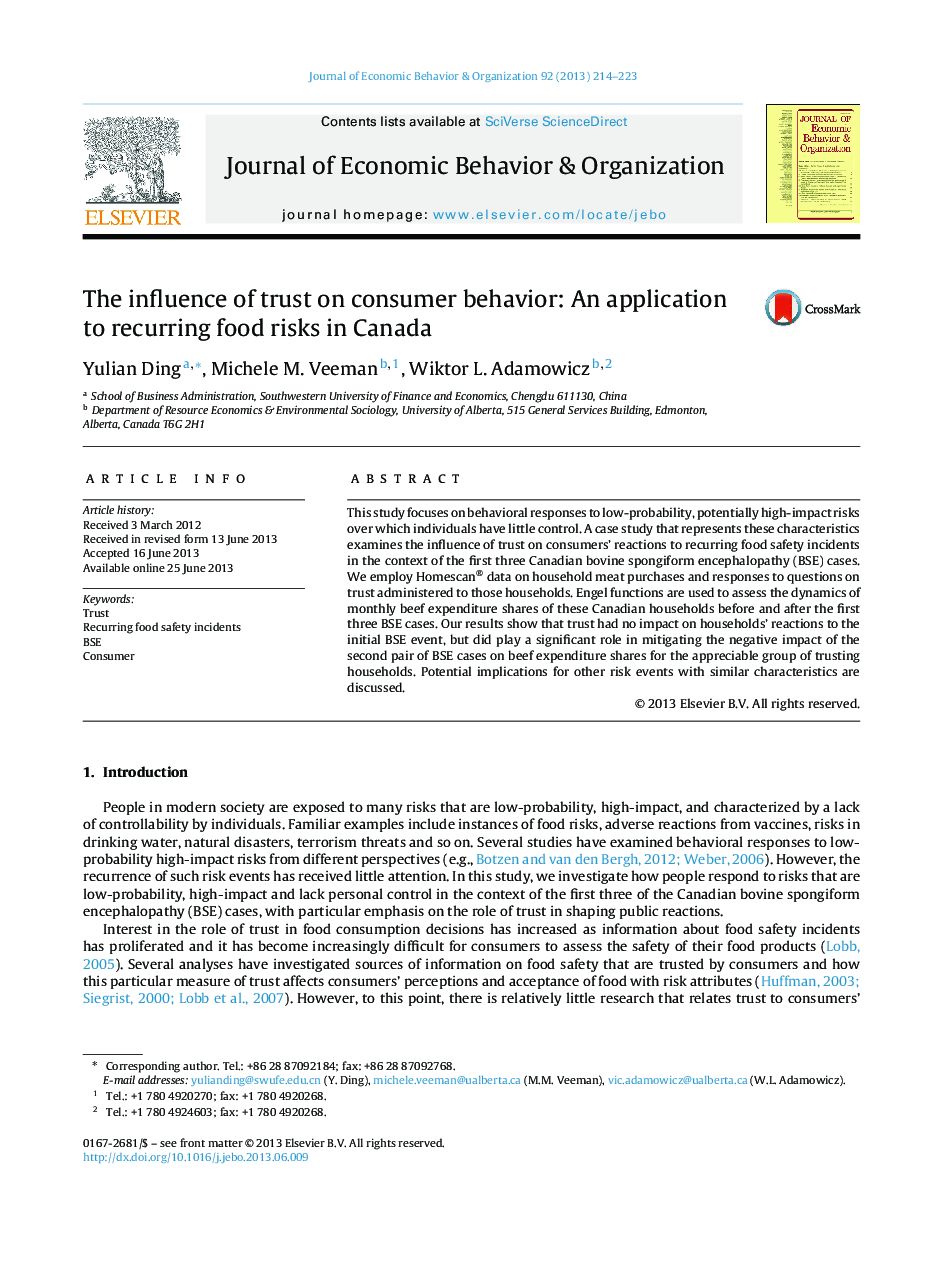| Article ID | Journal | Published Year | Pages | File Type |
|---|---|---|---|---|
| 7243806 | Journal of Economic Behavior & Organization | 2013 | 10 Pages |
Abstract
This study focuses on behavioral responses to low-probability, potentially high-impact risks over which individuals have little control. A case study that represents these characteristics examines the influence of trust on consumers' reactions to recurring food safety incidents in the context of the first three Canadian bovine spongiform encephalopathy (BSE) cases. We employ Homescan® data on household meat purchases and responses to questions on trust administered to those households. Engel functions are used to assess the dynamics of monthly beef expenditure shares of these Canadian households before and after the first three BSE cases. Our results show that trust had no impact on households' reactions to the initial BSE event, but did play a significant role in mitigating the negative impact of the second pair of BSE cases on beef expenditure shares for the appreciable group of trusting households. Potential implications for other risk events with similar characteristics are discussed.
Related Topics
Social Sciences and Humanities
Economics, Econometrics and Finance
Economics and Econometrics
Authors
Yulian Ding, Michele M. Veeman, Wiktor L. Adamowicz,
